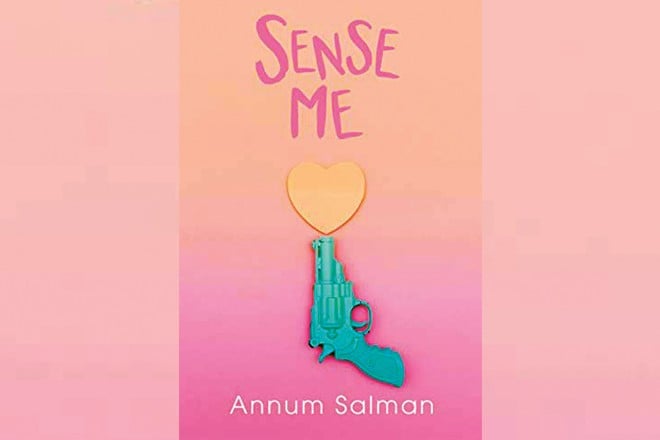

BOOK REVIEW
As the world of poetry and literature changes its course in the age of millennial writers and digital platforms, which provide them with new opportunities to showcase their craft, there are still those who feel the amalgamation of both the new and the classic can do wonders. One such spoken word poetess is Annum Salman.
Releasing her debut book of poems and spoken word, Sense Me, the author who is a Creative Writing graduate from the University of Surrey explores a myriad of facets as she delves into love, relationships, nostalgia, loss, fear, and the sense of feeling foreign, with her words in her latest book.
"Hold this book in your hand, touch its cover, read the lines with your eyes, taste the words on your lips, experience the silence between the noise, and smell the nostalgia in this present," the author writes as an introduction about her book. Truthfully, that is how one could understand Salman’s poetry and explore their own senses and emotions to grasp the familiarities and unfamiliarity of the world around in the words put forward by the author.
Creating harmony between her writing and her emotions, the book also explores the craft of poetry via illustrations, which have been made by Aaiza Alam - a fine artist from CSM, University of the Arts, London, who beautifully interprets Salman’s work through her art - which at places delves into the dark ethos of the author’s writing.
Having said that, Sense Me is more than just about the writer’s own ethos. At places, it also creates an experience that is universal and is the voice of the millennial woman. Whether it’s about harassment that women face in everyday life or the sense of losing loved ones, the book brings about a sense of relevance along with it.
Additionally, what makes it more interesting is the fact that to an extent, it deviates away from the format that has become the standard format in today’s day and age, where Rupi Kaur has become a reference point. Thus, in a large sense, Salman’s poetry has carved its own niche which is much-needed in contemporary South Asian literature being sold today.
However, the poetry at places does get to an intense level where it may become slightly uncomfortable. Nonetheless, for an avid reader that takes moving spoken word seriously, the book may evoke empathy in them. In many ways, it is a unique and deserving addition to today’s modern poetry with its raw honesty and poetic sensibility that can speak to a soul. Every moment, she lets her readers feel a part of herself that so many can relate too.
All in all, amidst an environment where poetry has seen its fair share of evolution and in some cases devolution, Annum Salman has made sure her voice resonates with those in the Subcontinent and to an international audience as she shares her emotive experience of being a woman, a daughter, and a foreigner undergoing mental-health issues, sexism, and racism.